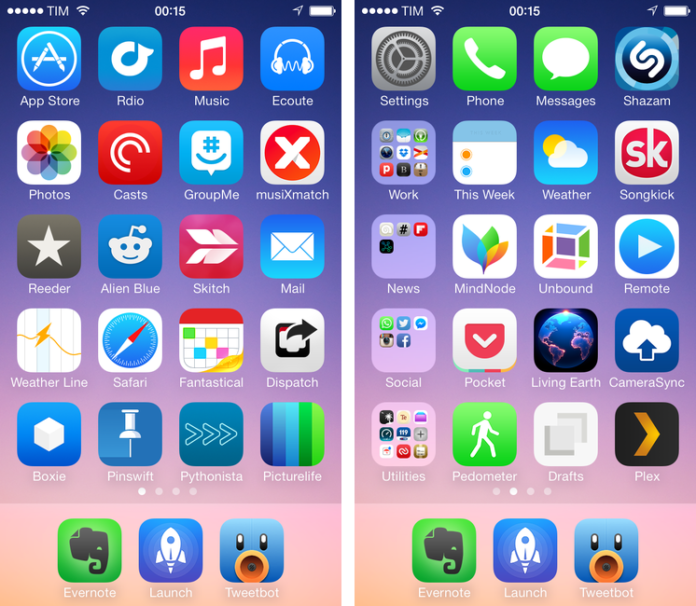Introduction
Are you constantly tempted by the plethora of apps available on your iPhone? The app store is like a candy store for tech enthusiasts, offering endless possibilities at just a tap away. But do you really need to buy every app that catches your eye? Let’s dive into the pros and cons of purchasing apps on your iPhone and explore how to make informed decisions when it comes to enhancing your digital experience.
Pros of Buying Apps on iPhone
When it comes to buying apps on your iPhone, there are certainly some perks worth considering. One of the main advantages is access to a wide range of high-quality apps that can enhance your productivity, entertainment, and overall user experience. Purchasing apps often means you are getting a well-designed and fully functional product without any intrusive ads or limitations.
Furthermore, buying apps can support developers who put time and effort into creating innovative solutions for users like you. By investing in paid apps, you are contributing to the growth of the app development community and encouraging continuous improvement in app quality.
Another benefit of purchasing apps is the assurance of receiving timely updates and customer support from developers. Paid apps typically come with more reliable customer service options, ensuring that any issues or inquiries you may have are addressed promptly.
When you buy apps on your iPhone, you not only gain access to premium features and content but also show appreciation for the hard work put into creating these digital solutions.
Cons of Buying Apps on iPhone
When it comes to buying apps on your iPhone, there are some drawbacks you might want to consider. One of the main cons is that purchasing multiple apps can quickly add up and become costly. While some apps may only cost a few dollars, those expenses can accumulate over time. Additionally, not all paid apps live up to their promises or provide the value you were expecting.
Another downside of buying apps is that some developers offer in-app purchases or subscriptions, which can lead to unexpected charges on your account. It’s essential to carefully read the app’s terms and conditions before making any purchases to avoid any surprises later on. Moreover, with thousands of new apps being released every day, it can be challenging to determine which ones are worth investing in.
Furthermore, buying too many apps can clutter your device and take up valuable storage space. It’s crucial to regularly assess which apps you actually use and delete the ones that no longer serve a purpose. Some paid apps may have hidden fees or require additional purchases for full functionality, making them less cost-effective in the long run.
How to Decide Which Apps to Buy
When it comes to deciding which apps to buy on your iPhone, it’s important to consider a few key factors. First, think about your interests and hobbies. Are you into fitness, photography, or cooking? Look for apps that align with your passions.
Next, consider the functionality of the app. Will it truly add value to your daily life or help you be more productive? Check out reviews and ratings from other users to get an idea of how well the app works in real-world scenarios.
Another aspect to think about is the price. While some apps may be worth splurging on, others might have free alternatives that offer similar features. Take a moment to weigh the cost against the benefits you’ll gain from using the app.
Don’t forget about updates and support. Make sure the app is regularly updated by its developers and has good customer service in case you encounter any issues while using it. By considering these factors, you can make informed decisions when choosing which apps to purchase for your iPhone.
Alternatives to Buying Apps on iPhone
If you’re looking to explore alternatives to buying apps on your iPhone, there are a few options worth considering. One alternative is to take advantage of free versions or lite versions of apps that offer basic features without the need for a purchase. These versions often have ads or limited functionality, but they can still be useful.
Another option is to look for discounted app bundles or sales on the App Store. Many developers offer promotions where you can get multiple apps at a reduced price, saving you money in the long run. Additionally, keep an eye out for app deals and discounts through third-party websites or newsletters.
Consider exploring subscription-based services that provide access to a wide range of apps for a monthly fee. This way, you can enjoy premium features across different applications without having to make individual purchases.
Don’t forget about utilizing web-based tools or browser extensions as alternatives to standalone mobile apps. Some tasks can be accomplished through websites rather than dedicated applications, saving you storage space and potentially reducing costs in the process.
Conclusion
While buying apps on iPhone can enhance your user experience and offer valuable features, it is not necessary to purchase every app available. It’s essential to evaluate your needs, preferences, and budget before deciding which apps are worth investing in. By carefully selecting the apps that align with your lifestyle and interests, you can optimize your iPhone’s functionality without breaking the bank. Remember to explore alternative options such as free trials, freemium models, or seeking out similar apps that are more cost-effective. Striking a balance between paid and free apps will help you make the most of your iPhone experience while staying financially savvy.
